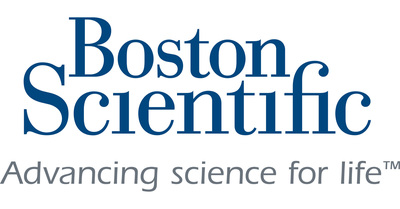Boston Scientific Receives FDA Approval for the AGENT™ Drug-Coated Balloon
First coronary drug-coated balloon in
Experience the full interactive Multichannel News Release here: https://www.multivu.com/players/English/9029352-boston-scientific-fda-approval-agent-drug-coated-balloon/
"With more than 100,000 patients treated globally to date in both clinical and commercial settings, we are very pleased to introduce this proven therapy as the first drug-coated coronary balloon in the
While the stenting of coronary lesions continues to show a substantial improvement in quality of life for patients with coronary artery disease, ISR still encompasses 10 percent of percutaneous coronary interventions in the
Following Breakthrough Device Designation granted for the technology by the FDA in 2021, the approval was supported by positive results from the multicenter, prospective, randomized controlled AGENT IDE trial, which enrolled 600 patients at 40 U.S. sites.3 In the prespecified interim analysis of the first 480 patients enrolled, the study met the primary endpoint of target lesion failure (TLF) at 12 months with the AGENT DCB demonstrating statistical superiority to uncoated balloon angioplasty (
"The AGENT IDE trial demonstrated that the AGENT DCB is an effective and safe treatment option for coronary in-stent restenosis, even in a high-risk population, which included many individuals with multi-layer stents or diabetes," said principal investigator Dr. Robert W. Yeh, section chief of interventional cardiology at the Beth Israel Deaconess Medical Center. "Treating ISR has been challenging in the
The AGENT DCB is available in
More information on the AGENT DCB is available here.
About Boston Scientific
Boston Scientific transforms lives through innovative medical technologies that improve the health of patients around the world. As a global medical technology leader for more than 40 years, we advance science for life by providing a broad range of high-performance solutions that address unmet patient needs and reduce the cost of healthcare. Our portfolio of devices and therapies helps physicians diagnose and treat complex cardiovascular, respiratory, digestive, oncological, neurological and urological diseases and conditions. Learn more at www.bostonscientific.com and connect on LinkedIn and X, formerly Twitter.
Cautionary Statement Regarding Forward-Looking Statements
This press release contains forward-looking statements within the meaning of Section 27A of the Securities Act of 1933 and Section 21E of the Securities Exchange Act of 1934. Forward-looking statements may be identified by words like "anticipate," "expect," "project," "believe," "plan," "estimate," "intend" and similar words. These forward-looking statements are based on our beliefs, assumptions and estimates using information available to us at the time and are not intended to be guarantees of future events or performance. These forward-looking statements include, among other things, statements regarding our business plans and product performance and impact, and new and anticipated product approvals and launches. If our underlying assumptions turn out to be incorrect, or if certain risks or uncertainties materialize, actual results could vary materially from the expectations and projections expressed or implied by our forward-looking statements. These factors, in some cases, have affected and in the future (together with other factors) could affect our ability to implement our business strategy and may cause actual results to differ materially from those contemplated by the statements expressed in this press release. As a result, readers are cautioned not to place undue reliance on any of our forward-looking statements.
Factors that may cause such differences include, among other things: future economic, competitive, reimbursement and regulatory conditions; manufacturing, distribution and supply chain disruptions and cost increases; new product introductions; demographic trends; intellectual property; litigation; financial market conditions; and future business decisions made by us and our competitors. All of these factors are difficult or impossible to predict accurately and many of them are beyond our control. For a further list and description of these and other important risks and uncertainties that may affect our future operations, see Part I, Item 1A – Risk Factors in our most recent Annual Report on Form 10-K filed with the Securities and Exchange Commission, which we may update in Part II, Item 1A – Risk Factors in Quarterly Reports on Form 10-Q we have filed or will file hereafter. We disclaim any intention or obligation to publicly update or revise any forward-looking statements to reflect any change in our expectations or in events, conditions or circumstances on which those expectations may be based, or that may affect the likelihood that actual results will differ from those contained in the forward-looking statements. This cautionary statement is applicable to all forward-looking statements contained in this document.
CONTACTS:
Angela Mineo
Media Relations
+1 (763) 955-8325 (office)
Angela.mineo@bsci.com
Jon Monson
Investor Relations
+1 (508) 683-5450
BSXInvestorRelations@bsci.com
* Dr. Robert Yeh is a paid consultant of Boston Scientific Corporation. He has not been compensated in connection with this press release.
1 Shlofmitz E, Iantorno M, Waksman R. Restenosis of Drug-Eluting Stents: A New Classification System Based on Disease Mechanism to Guide Treatment and State-of-the-Art Review. Circ Cardiovasc Interv. 2019 Aug;12(8):e007023. doi: 10.1161/CIRCINTERVENTIONS.118.007023.
2 Moussa ID, Mohananey D, Saucedo J, et al. Trends and outcomes of restenosis after coronary stent implantation in
3 Yeh RW, Bachinsky W, Stoler R, et al. Rationale and design of a randomized study comparing the AGENT drug coated balloon to plain old balloon angioplasty in patients with In-stent restenosis. American Heart Journal. 2021;241:101-107. doi:10.1016/j.ahj.2021.07.008.
4 AGENT IDE Clinical Trial data presented at TCT 2023 by Dr. Robert Yeh.
5 TLF was defined as myocardial infarction relative to the target vessel, the need for a target lesion revascularization (TLR) procedure or cardiac mortality.

![]() View original content:https://www.prnewswire.com/news-releases/boston-scientific-receives-fda-approval-for-the-agent-drug-coated-balloon-302076861.html
View original content:https://www.prnewswire.com/news-releases/boston-scientific-receives-fda-approval-for-the-agent-drug-coated-balloon-302076861.html
SOURCE Boston Scientific Corporation






